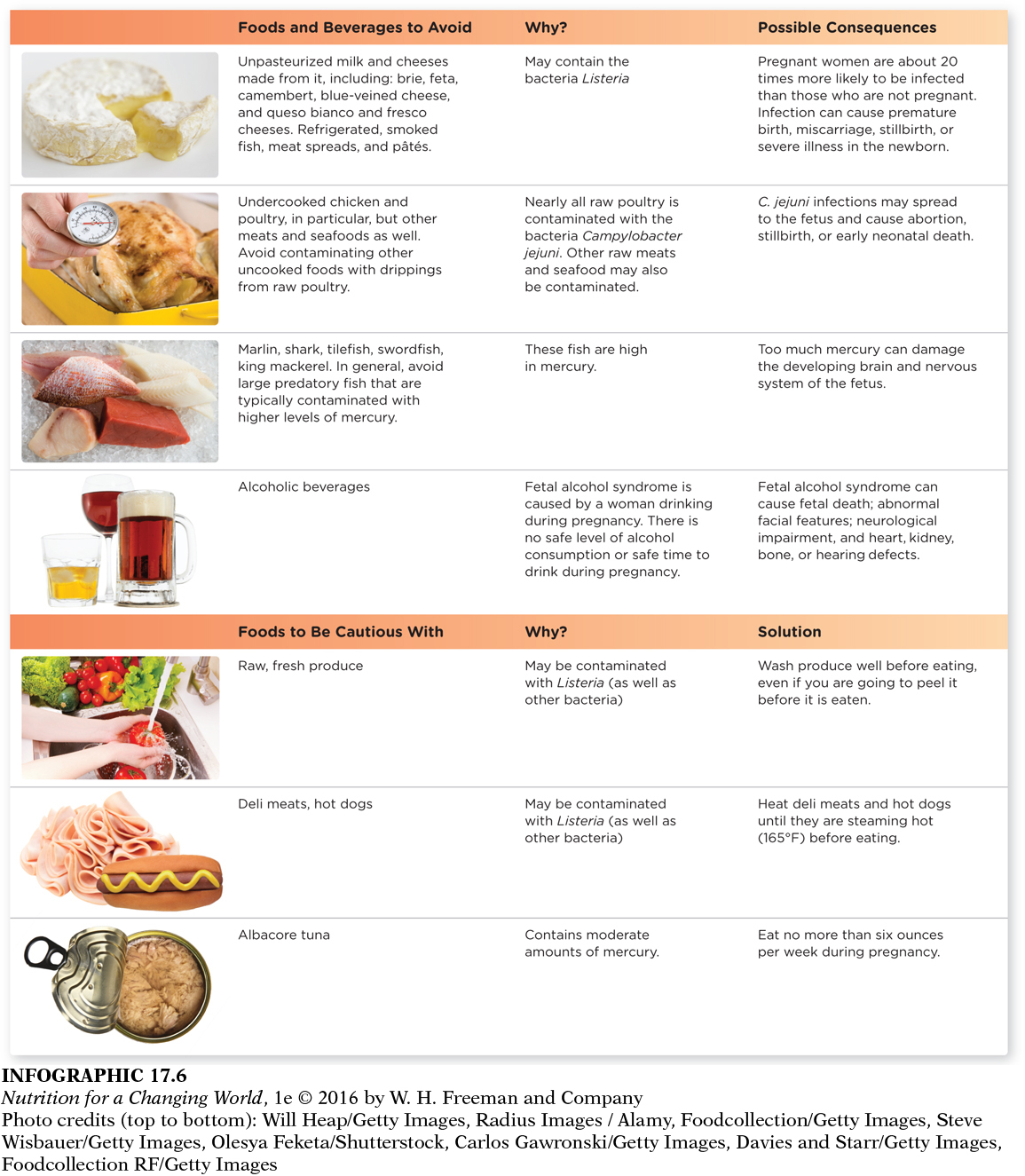Pregnant women need to be careful to avoid microbial-contaminated foods. Hormonal changes during pregnancy suppress the immune system of the mother. While such changes are necessary for the survival of the fetus, they increase the chance of foodborne infections. (See Chapter 20 for specific information on food safety.) Pregnant women are about 20 times more likely to develop listeriosis than a nonpregnant individual. Listeriosis is a serious infection caused by eating food tainted with the bacterium Listeria monocytogenes, which can cause premature birth, miscarriage, fetal death, and newborn illness, as the bacteria can cross the placenta. To minimize their risk of listeriosis, expecting women should not eat hot dogs or other luncheon meats unless they have been heated to steaming hot. They should also avoid unpasteurized cheeses, such as brie, blue cheeses, camembert, and some fetas; uncooked refrigerated smoked seafood; refrigerated meat spreads and pâtés; and unpasteurized milks and juices. (INFOGRAPHIC 17.6)
INFOGRAPHIC 17.6 Food Safety During Pregnancy During pregnancy a woman’s immune system is suppressed, placing her at increased risk of contracting a food-borne illness. In some cases, these infections and toxins in foods can place either mom or the fetus at risk of severe complications.

Photo credits (top to bottom): Will Heap/Getty Images, Radius Images / Alamy, Foodcollection/Getty Images, Steve Wisbauer/Getty Images, Olesya Feketa/Shutterstock, Carlos Gawronski/Getty Images, Davies and Starr/Getty Images, Foodcollection RF/Getty Images
